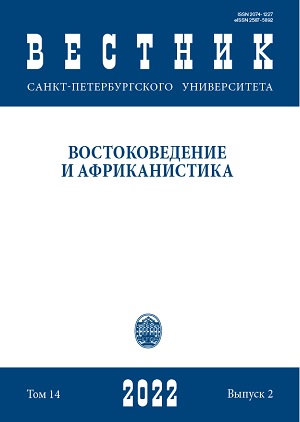The Main Trends in the Development of Non-state Education in the People's Republic of China in the 21st Century
DOI:
https://doi.org/10.21638/spbu13.2022.202Abstract
Since the beginning of the 21st century, educating a population capable to ensure high growth rates and to improve qualitative characteristics has become crucial for modern China. The Chinese authorities proclaimed science and education to be the “foundation” of socialist modernization and the “root” of further development of the Chinese society. To deepen the transformation in education initiated under the policies of reform and opening up, China’s educational system has come a long way. Until recently, the main focus for the authorities was the public education system. The private education sector, although formally enjoying political support from the state, nevertheless developed rather chaotically. Economic reforms in the country created the preconditions for increasing educational demand of the population not only for public but also private education, which was facilitated by a number of factors, including growth of welfare and urbanization. However, the development of the sphere of nongovernmental education had pronounced regional specifics, so it occurred rather unevenly. Recently, the development of private educational institutions has become one of the areas, on which the authorities have actively started working on. The article provides an overview of the development of private education in China, touches on the problems and peculiarities of the development of the private education sector, the impact of the pandemic, prerequisites and the upcoming reforms in the industry in the nearest future.
Keywords:
China, private education, minban, non-state educational institutions, reforms, pandemic
Downloads
References
Downloads
Published
How to Cite
Issue
Section
License
Articles of "Vestnik of Saint Petersburg University. Asian and African Studies" are open access distributed under the terms of the License Agreement with Saint Petersburg State University, which permits to the authors unrestricted distribution and self-archiving free of charge.





